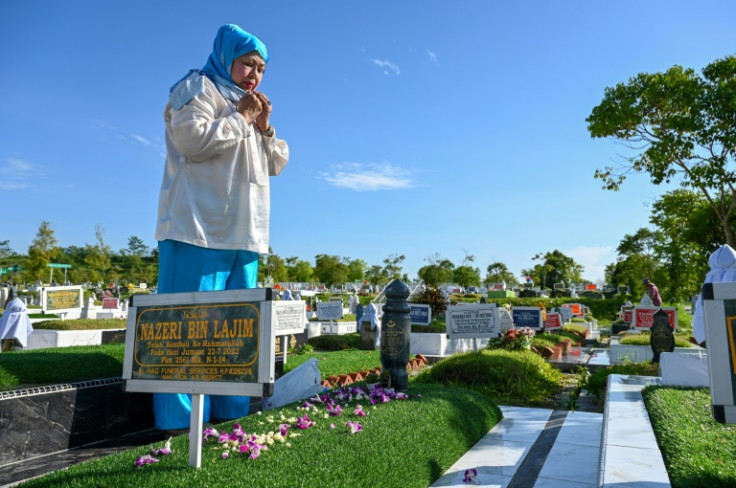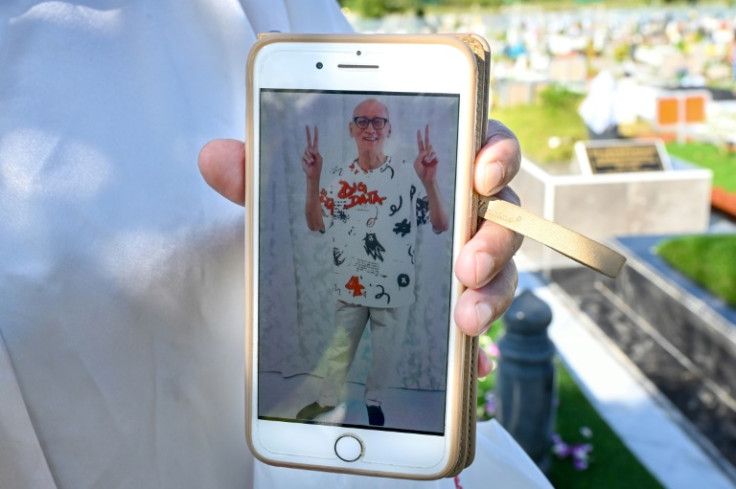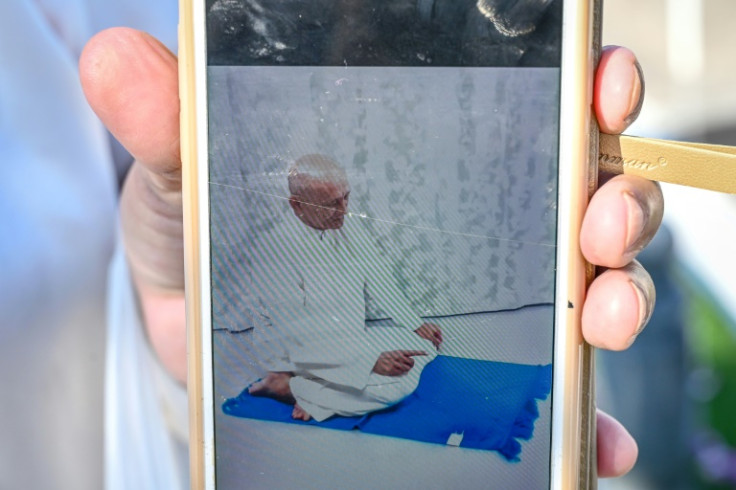'Love Letters' From Death Row: Singapore's Pre-execution Photo Shoots

Death row inmate Nazeri Lajim beams at the camera, fingers raised in a "V" sign, wearing a shirt emblazoned with large motifs and showing no signs of his impending hanging.
Taken days before his execution at Singapore's Changi prison, the picture is among the last mementoes Lajim's family has of the 64-year-old, who was executed on charges of drug trafficking.
In the city-state, prison officials offer a photo shoot shortly before an inmate's hanging, providing simple props like chairs and other items.
"When I see his photograph he's (a) very healthy man, he's very good looking man... his face shines," Nazira Lajim Hertslet, his sister, told AFP. "I was very upset... that he was taken away just like that."
Singapore imposes the death penalty for a litany of crimes, including murder and some forms of kidnapping.
It also has some of the world's toughest anti-drug laws: trafficking more than 500 grams of cannabis can result in the death penalty.
Thirteen people have been hanged since the government resumed executions following a two-year hiatus in place during the Covid-19 pandemic.
In a programme first introduced in the 1990s, they were offered the option to pose for photographs before their death.
Usually taken against a pale-green flowery backdrop, the photos offer a glimpse into the last days of the condemned.
The Singapore Prison Service says participation in the programme is voluntary, and that the photo shoots "allow family members to have recent photographs of their loved one".
Relatives, however, say they have mixed feelings about the practice.
"Actually it's quite cruel to do such thing, to take photograph on his last days," said Hertslet, pointing to the horror inmates might feel knowing it was their last time being photographed alive.
"But at least we have his last photo for memories when he's really gone," she added.
Nazeri was hanged last year for trafficking more than 33 grams (1.2 ounces) of heroin.
In his sister's favourite photograph of him, he is wearing a white Muslim prayer robe, his hands clasped in front, looking at the camera.
Little information is publicly available about Singapore's death row inmates.
The Transformative Justice Collective, which provides support to families of death row prisoners and advocates for the abolition of the death penalty, estimates about 53 people are on death row, the majority convicted of drug offences.
Authorities generally notify inmates and their families about a week before an execution.
During that time, the inmate is allowed to have daily visitors, but they are separated by a glass pane and no physical contact is allowed, according to the TJC.
Spiritual counsellors are also provided.
Kokila Annamalai, a TJC activist, said the photo shoots are an attempt "to lend a veneer of thoughtfulness" to the executions.
In the photo sessions, prisoners can strike a particular pose or wear clothing that means something to a family member, she said.
"And so, I think that the photos are also like love letters to them."
Rights groups, including Amnesty International, have long called on Singapore to abolish capital punishment, but the government insists it is an effective deterrent against crime.
Tangaraju Suppiah, a 46-year-old Singaporean, was hanged in April for conspiring to smuggle one kilogram (2.2 pounds) of cannabis.
"Every night I cry and every night I think about him," his sister Leelavathy Suppiah told AFP.
Tangaraju initially refused to do the photo shoot, but relented after his family persuaded him, she said.
Leelavathy has framed a photograph of him smiling, holding his thumb and forefinger in a heart shape -- a pose popularised by K-pop stars.
"I'm very happy when I see the photos. At least he's there in the photos," she told AFP, speaking in English.
"This is the photo our family members everybody like because he smile," she added.
Still, she wondered what must have been going through her brother's mind in his final days.
"They know they're going to die," she said. "It's cruel, you know?"
Kalwant Singh's family bought him a pair of white sneakers, which he wore with a T-shirt, sweatpants and a broad smile in one photograph.
Sonia Tarlochan Kaur, the 31-year-old Malaysian's sister, told AFP he only got about half an hour during the photo shoot to wear the shoes, and so ran around the cell block to make the most of them.
After Kalwant's execution for heroin trafficking last year, Sonia said she cannot bring herself to look at the photographs.
"They could have just given me that half an hour to hug him tight."



© Copyright AFP 2024. All rights reserved.





















